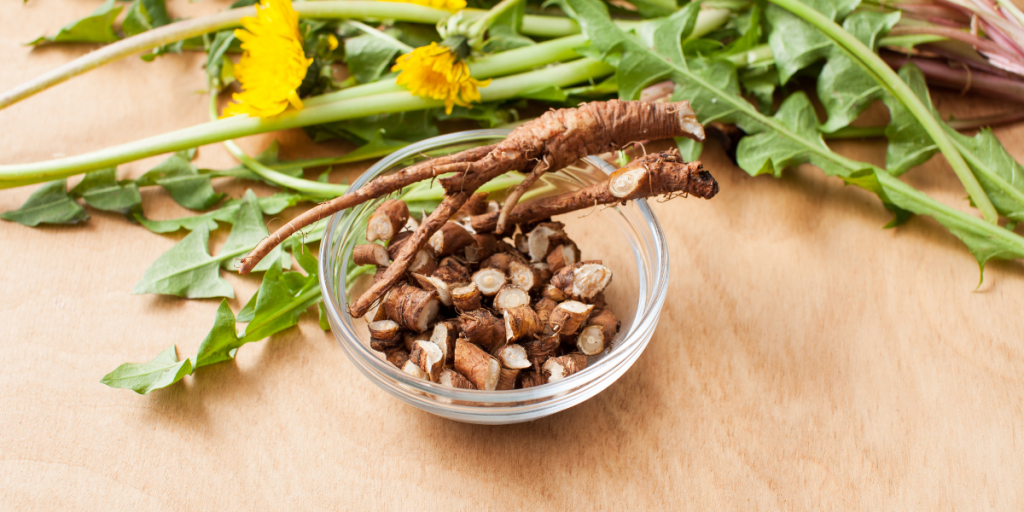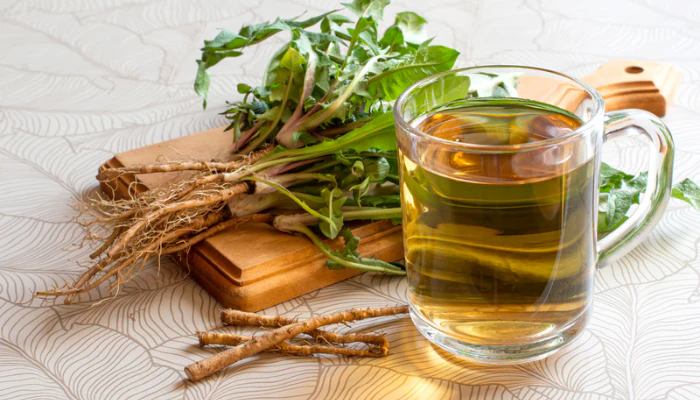When most people think of dandelions, they imagine pesky weeds scattered across lawns. But here’s the surprising truth: dandelion roots may be one of nature’s most underrated health treasures. According to herbal medicine records dating back hundreds of years, dandelion root has been used to support liver health, digestion, and overall vitality. Yet today, many people simply pull them up and toss them away, unaware of the potential benefits hiding underground.
Recent studies show that dandelion root contains powerful antioxidants, natural prebiotics, and compounds that may support blood sugar balance and detoxification. Imagine drinking your morning coffee but replacing it with a caffeine-free, roasted dandelion root tea that supports your liver and digestion at the same time. In this article, you’ll discover why the root is considered the most important part of the plant, the science behind its benefits, and how to easily incorporate it into your daily routine for better health.

Why Dandelion Root Deserves More Attention
Dandelion leaves and flowers often get credit in herbal teas and salads, but the root is where most of the plant’s therapeutic potential lies. It contains inulin, a type of soluble fiber that acts as a prebiotic, feeding beneficial gut bacteria. The root also carries bitter compounds that stimulate digestion and natural detoxification.
For centuries, dandelion root has been used in Traditional Chinese Medicine and by Native American healers for everything from indigestion to skin conditions. Modern science is now validating these ancient uses, revealing compounds that may help with liver support, inflammation, and even immune balance.
Key Health Benefits of Dandelion Root
1. Supports Liver Health and Detoxification
Your liver works tirelessly to filter toxins from your blood, and dandelion root provides a gentle boost. Its bitter compounds stimulate bile production, which helps your body break down fats and flush out waste more efficiently.
Case example: In several small animal studies, dandelion root extract reduced signs of liver stress caused by toxins. While human research is still emerging, herbal practitioners often recommend it as a natural liver tonic.

2. Improves Digestion and Gut Balance
Dandelion root is rich in inulin, a prebiotic fiber that supports healthy gut bacteria. This can ease bloating, constipation, and sluggish digestion while promoting overall gut balance.
Practical tip: Drinking dandelion root tea before meals can stimulate appetite, support smoother digestion, and reduce that heavy, uncomfortable feeling after eating.
3. Helps Regulate Blood Sugar Levels
Preliminary studies suggest that dandelion root may help regulate blood sugar and insulin sensitivity. The inulin fiber slows the absorption of sugars in the digestive tract, while antioxidants help protect against cellular stress linked to diabetes.
Everyday example: Replacing a sugary afternoon coffee with dandelion root tea may help maintain steady energy without spiking blood sugar.

4. Rich Source of Antioxidants
The root contains beta-carotene and polyphenols, which help neutralize free radicals. Antioxidants are essential for slowing the aging process and reducing the risk of chronic disease.
Lifestyle pairing: Combine dandelion root tea with a diet high in fruits and vegetables for maximum antioxidant protection.
5. May Support Healthy Weight Management
Because dandelion root helps with digestion, reduces water retention, and may influence fat metabolism, it’s often included in natural weight-support blends. While it’s not a magic solution, it can be a gentle aid when combined with healthy eating and exercise.
How to Use Dandelion Root in Daily Life
The best part about dandelion root is its versatility. You don’t need expensive supplements to enjoy its benefits.

Tea or Coffee Substitute
Roasted dandelion root tea has a rich, earthy flavor that makes it a popular caffeine-free coffee alternative. It supports liver health while providing that warm, roasted taste.
Powders and Extracts
Dried root powders can be added to smoothies, soups, or herbal capsules. Extracts and tinctures offer a more concentrated dose, useful for those targeting specific health concerns.
Culinary Uses
Fresh roots can be scrubbed, sliced, and roasted like root vegetables. Their slightly bitter taste pairs well with savory dishes.
| Form of Use | Best For | Notes |
|---|---|---|
| Roasted tea | Daily liver and digestive support | Coffee substitute |
| Powder in smoothies | Gut balance and fiber | Easy to mix |
| Extract/tincture | Targeted liver or immune support | Potent, consult a professional |
| Cooked fresh roots | Culinary exploration | Slightly bitter, earthy |

Who Should Be Cautious with Dandelion Root?
While generally safe for most people, dandelion root may not be suitable for everyone.
- People allergic to ragweed, daisies, or marigolds may react to dandelion.
- Those taking diuretics, blood thinners, or certain antibiotics should consult their doctor first.
- Individuals with gallstones or bile duct obstruction should avoid it unless cleared by a healthcare provider.
Always start with small amounts and observe how your body responds.
Real-Life Example: A Gentle Health Transformation
A 52-year-old teacher shared her experience of replacing her daily coffee with roasted dandelion root tea. Within two months, she noticed less bloating, improved digestion, and more consistent energy levels throughout the day. While her case is anecdotal, it reflects what many people discover when they introduce this root into their lives: small changes can add up to meaningful results.

Conclusion: Why You Shouldn’t Ignore Dandelion Root
Dandelion root may look ordinary, but its health benefits are extraordinary. From supporting liver detox to improving digestion, balancing blood sugar, and fueling healthy gut bacteria, this humble root offers more than meets the eye.
FAQs in Brief:
- Is dandelion root safe to drink daily? Yes, for most people, 1–2 cups of tea per day is considered safe.
- Does it replace medication? No, it should be used as a supportive remedy, not as a replacement for prescribed treatments.
- How long until I see benefits? Some people notice improvements within weeks, while others may take months.
Disclaimer: This content is for informational purposes only and is not a substitute for professional medical advice. Always consult your healthcare provider before starting new supplements or herbal remedies.




